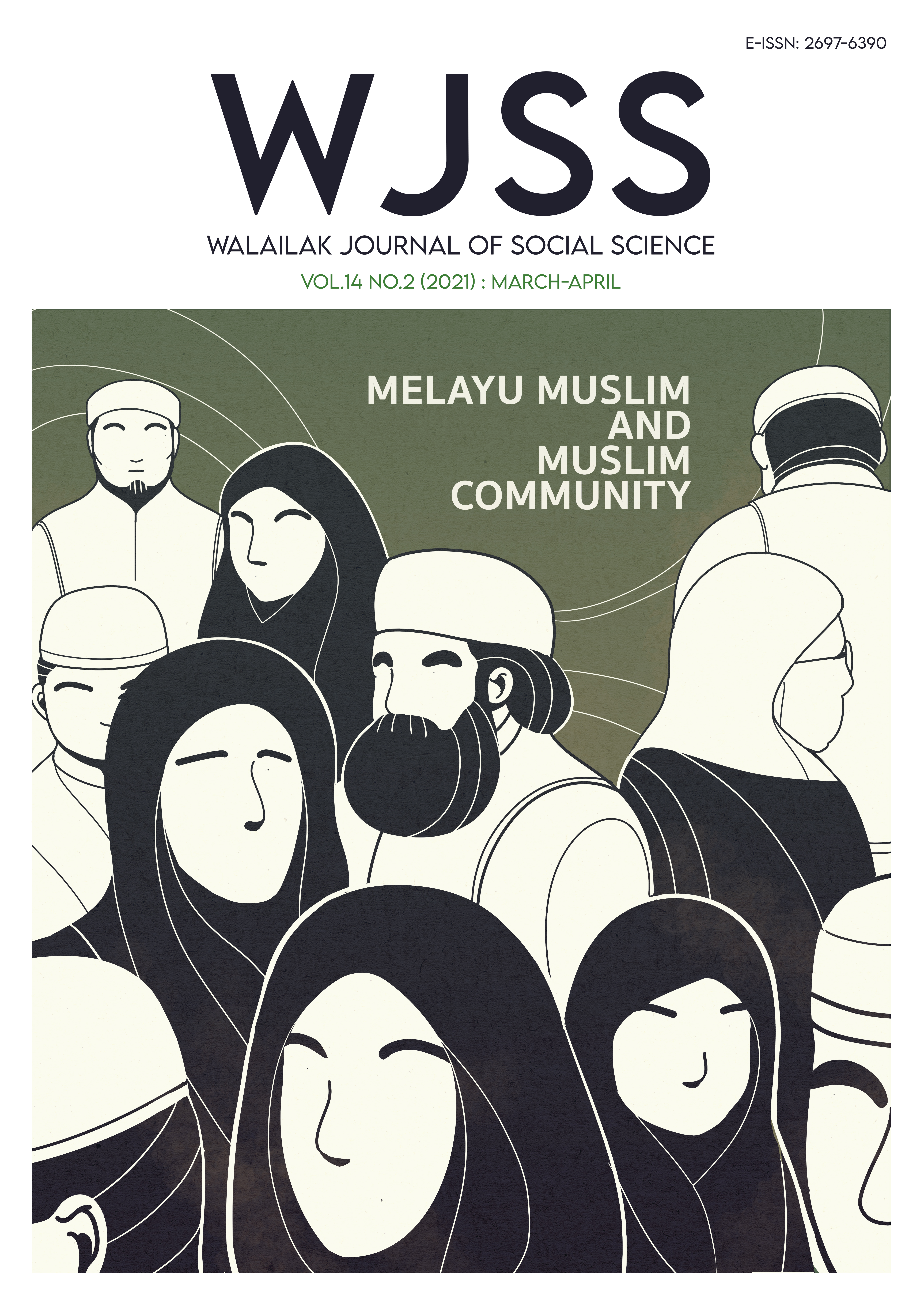Belonging without Conversion: The Establishment of Buddhism in Muslim Village
Main Article Content
Abstract
This paper investigates networks and strategies that the Thai missionary monks initiated with Muslim and Christian groups in Indonesia. It questions how has the monks reinterpreted Theravada Buddhism to establish itself in a Muslim village. Based upon an ethnographic fieldwork conducted in 2015-2016, it found that the forms of rituals have been adapted to respond to the local culture, Javanese in particular, while religious teachings are mostly transmitted in secular ways. Social welfare is a tool adopted to negotiate with other religious followers. Interestingly, monks seemed to be respected as much as Muslim Imans. This phenomenon portrays the successful adaptability and negotiations that eventually lead to the new form of religion. These processes help Thai monks to attract the new patrons who can still remain in Islam and Christianity without conversion, which can be seen as an interesting method of missionary work in the global era.
Article Details
Copyright: CC BY-NC-ND 4.0
References
Badan Pusat Statistik [Center of Statistics]. (2010). Penduduk menurut wilayahdan agama yang dianut Indonesia [Population by region and religion in Indonesia]. Retrieved from http://sp2010.bps.go.id/index.php/site/tabel?tid=321&wid=0
Bhikkhu, D. M. (2011). Temporary ordination for character transformation: A diasporic practice with transnational connections. Journal of Global Buddhism, 12(1), 51-68.
Borup, J. (2013). Aloha Buddha: The secularization of ethnic Japanese-American Buddhism. Journal of Global Buddhism, 14(1), 23-43.
Bush, R., & Rachman, B. M. (2014). NU and Muhammadiyah: Majority views on religious minorities in Indonesia. In Platzdasch, B., & Saravanamuttu, J. (Eds.). Religious diversity in Muslim-majority states in Southeast Asia: Areas of toleration and conflict (pp. 16-50). Singapore: ISEAS Publishing.
Chandler, S. (2005). Spreading Buddha’s light: The internationalization of Foguang Shan. In Learnman, L. (Ed.). Buddhist missionaries in the era of globalization (pp. 162-184). Honolulu, HI: University of Hawaii Press.
Clarke, P. B. (2005). Globalization and the pursuit of a shared understanding of the absolute: The case of Soka Gakkai in Brazil. In Learnman, L. (Ed.). Buddhist Missionaries in the Era of Globalization (pp. 123-139). Honolulu, HI: University of Hawaii Press.
Cornelio, J. S. (2016). Being catholic in the contemporary Philippines: Young people reinterpreting religion. New York: Routledge.
Dohrn, K. (2013). Translocal ethics: Hizmet teachers and the formation of Gülen-inspired Schools in Urban Tanzania. Sociology of Islam, 1(3-4), 233-256.
Federspiel, H. M. (2009). Persatuan Islam: Islamic reform in twentieth century Indonesia. Sheffield: Equinox Publishing.
Geertz, C. (1976). The religion of Java. CA: University of Chicago Press.
Hüwelmeier, G. (2008). Spirits in the marketplace: Transnational networks of Vietnamese Migrants in Berlin. In Smith, M. P., & Eade, J. (Eds.). Transnational Ties: Cities, Identities, and Migrations (pp. 131-144). NJ: Transaction Publishers.
Julia, C. H. (2005). The compassion relief diaspora. In Learnman, L. (Ed.). Buddhist Missionaries in the Era of Globalization (pp. 185-209). Honolulu, Hi: University of Hawaii Press.
Kingsbury, D. (2007). The free aceh movement: Islam and democratisation. Journal of Contemporary Asia, 37(2), 166-189.
Laliberté, A. (2011). Buddhist revival under state watch. Journal of Current Chinese Affairs, 40(2), 107-134.
Larsen, J., & Urry, J. (2006). Mobilities, networks, geographies. Aldershot, England: Ashgate.
Latief, H., & Nashir, H. (2020). Local dynamics and global engagements of the Islamic modernist movement in contemporary Indonesia: The Ccase of Muhammadiyah (2000-2020). Journal of Current Southeast Asian Affairs, 39(2), 290-309.
Platzdasch, B. (2014). Religious diversity in Muslim-majority states in Southeast Asia: Area of toleration and conflict. Singapore: ISEAS.
Sapitula, J. (2015). Buddhist meditation and emerging Pluralism in the Philippines: Toward sketching a preliminary trajectory. In Withaya, S. (Ed.). Interpretative Studies on Southeast Asian Culture (pp. 135-157). Bangkok, Thailand: Chulalongkorn University Press.
Sieck, W. R. (2010). Cultural network analysis: Method and application. In Schmorrowand, D., & Nicholson, D. (Eds.). Advances in cross-cultural decision making (pp. 260-269). Boca Raton, FL: CRC Press.
Urry, J. (2000). Sociology beyond societies: Mobilities for the twenty-first century. NY: Routledge.


